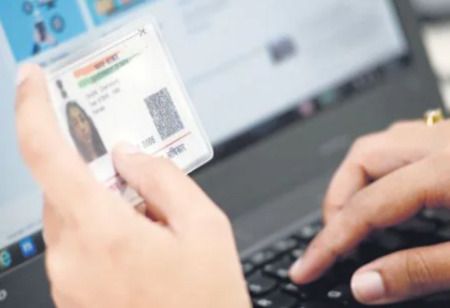
UIDAI Works on Simplifying Offline Aadhaar for Citizen KYC


The Unique Identification Authority of India (UIDAI), which manages the Aadhaar database, is working to strengthen the offline identity verification service for citizens, aiming to make it further secure and user-friendly and encourage more financial services players to adopt it.
UIDAI is said to be seeking to strengthen and regulate the process to allow citizens to complete the Aadhaar-based customer identification, or know-your-customer, process of service providers without disclosing their Aadhaar number or personal details.
The current methods of electronic, biometric and offline KYC require the customer to share the Aadhaar number or be present in person at the service provider for verification.
The KYC processes at many fintech firms and non-banking lenders were observed to be affected in June when the UIDAI and the Ministry of Electronics and Information Technology (Meity) blocked the websites of multiple startups for alleged unauthorised access to the Aadhaar database.
Even food delivery and ecommerce startups, which used Aadhaar for the verification of gig workers and blue-collar employees, faced disruption in their onboarding process.
Also Read: 5 Indian Inventors Who Shaped the Way We Live Today
There have been multiple rounds of conversations, and UIDAI has made it very clear that consumers will be able to use offline Aadhaar-based KYC without any need to share their Aadhaar number or personal details.
The government-backed authority has also clarified that the verification should be done strictly with consent from the customer.
These communications have happened between UIDAI and authorised agents: Aadhaar Authentication Agencies and KYC User Agencies. In a bid to make this verification process more popular, UIDAI will promote QR codes and PDF files beyond the original XML data that customers currently need to download from the UIDAI website for offline KYC, the second banker said. This is expected to make it easier for customers to manage these documents and complete their KYC more conveniently.
Additionally, the authority has specified that offline Aadhaar-based KYC can be completed without any biometric authentication or one-time password (OTP). With more clarity, there is now an expectation that more banks and financial services companies will start using offline Aadhaar KYC for their customer verification, the second banker said. “Startups can act as service providers on top of authorised agencies like Protean e-Gov and NPCI,” he added.
The National Payment Corporation of India (NPCI) offers a platform called eKYC-Setu, which provides electronic KYC services. While this service initially started with banks, in March, NPCI informed its network participants that companies regulated by the Insurance Regulatory and Development Authority of India, Pension Fund Regulatory and Development Authority and the Securities and Exchange Board of India can also start using this service.
E-KYC using an OTP was one of three mechanisms that the UIDAI enabled for regulated entities after the Supreme Court in September 2018 restricted private companies’ access to the Aadhaar database. It involves sharing the Aadhaar number and pinging the UIDAI database for verification, a process typically followed by banks, insurance companies and others.
The other two were biometric-based, which requires the customer’s physical presence, and the offline method where the customer shares an XML file that could be decoded and used for verification.
Also Read: 5 Business Tycoons Making India Proud Worldwide
Founders of identity verification startups that offer these services are exploring opportunities to become service providers on top of the regulated authentication agencies, so they can continue providing this service in a compliant manner.